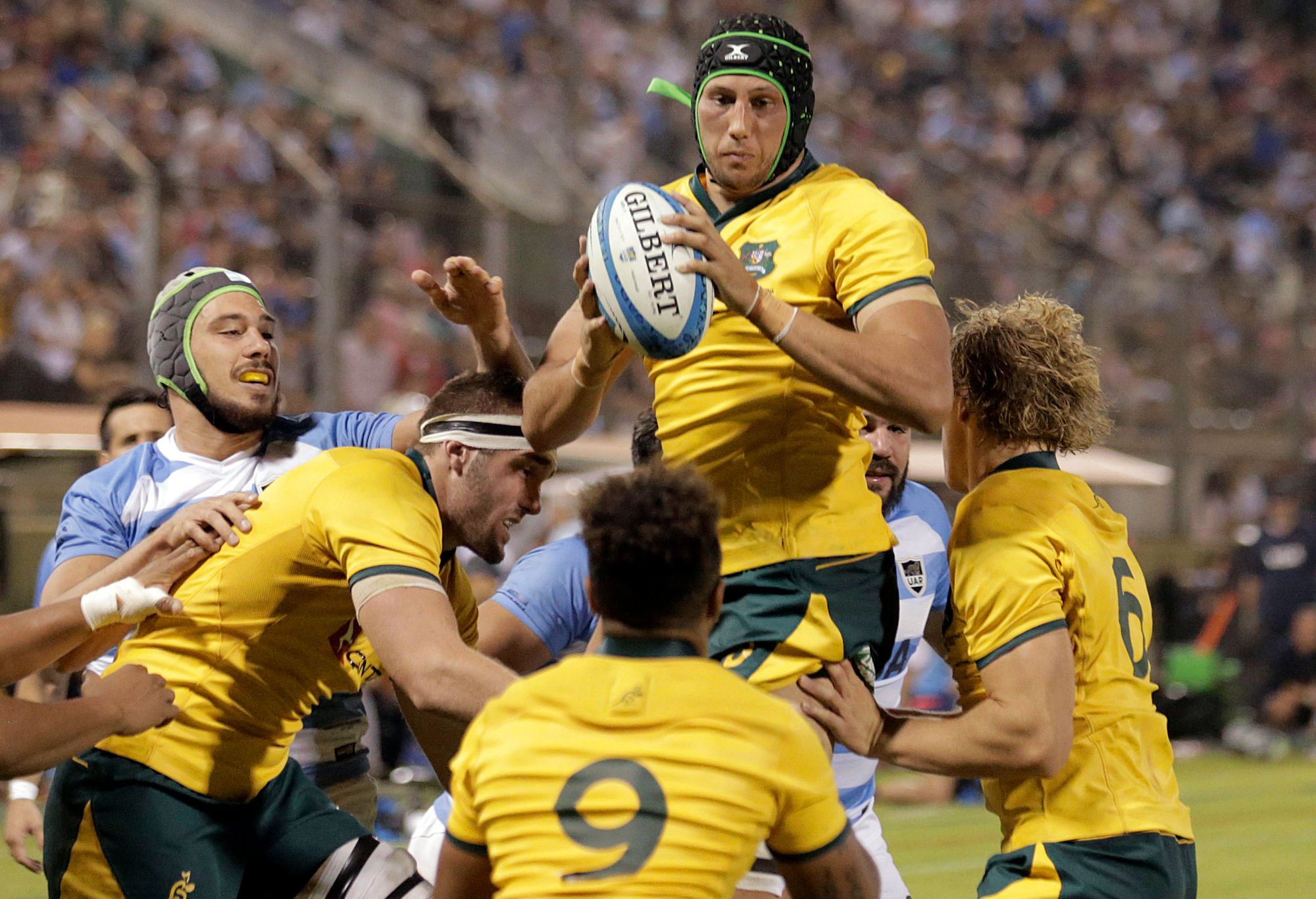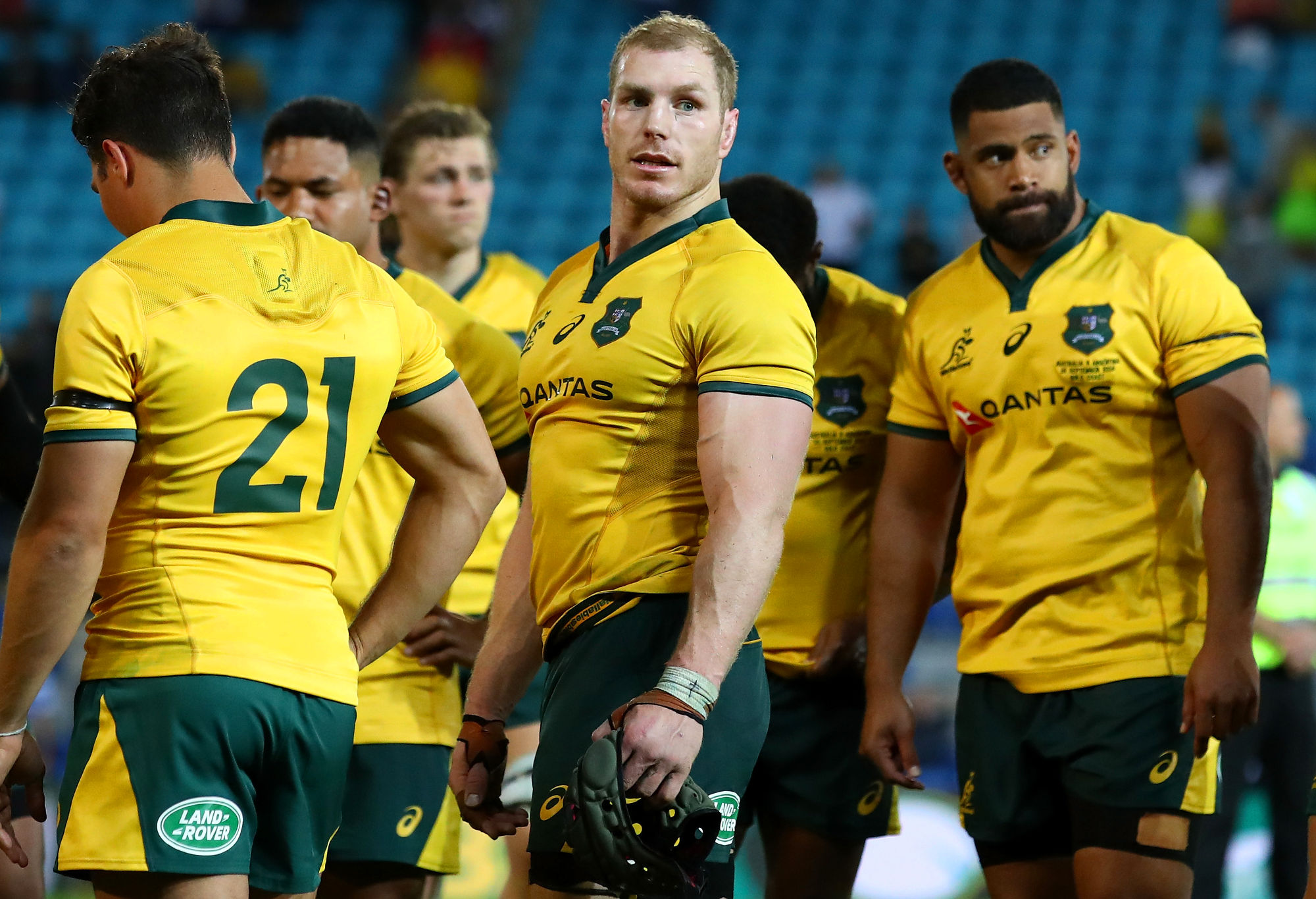Springboks forced to dig deep as Pumas fall just short of mighty upset
South Africa have managed to grind out victory in a "proper Test match", edging Argentina 22-21 in their final Rugby Championship fixture at Ellis…
There’s only one way to describe Michael Hooper’s Wallabies in the first half against the Pumas at Salta yesterday.
Bloody disgraceful, an international embarrassment to Australia, the code – and to themselves.
Down 14-0 in the first four minutes, the men in gold went into the break 31-7 adrift with a stinging spray from a disgusted Will Genia echoing into their ears.
The witless Wallabies had missed 19 tackles and turned over possession 13 times.
History will recall that what Genia delivered paled into insignificance compared to the two barrels that coach Michael Cheika fired in the shed.
Four minutes into the second session, Izack Rodda charged down a Puma clearance, the ball bounced into Hooper’s hands and he sent the lock in for a converted try.
Eight minutes in and Israel Folau exploded midfield to touch down for another converted try – Pumas 31-21.
Three minutes later, Dane Haylett-Petty scored the first of his two tries, and it was 31-28. When David Pocock crossed, the Wallabies hit the front for the first time to lead 35-34.
When the siren sounded the Wallabies had completed the biggest comeback in tier one rugby history. The scoreboard read 45-34, featuring a second half 38-3 with five converted tries to a penalty.

(Photo by Daniel Jayo/Getty Images)
It would be so easy to go into raptures about the Wallabies’ stunning comeback, but that would be an injustice to hide the real truth.
And it’s not that Cheika hasn’t had a Plan B, or Plan C, if Plan A isn’t working as he’s been pilloried with throughout this campaign.
It’s the Wallabies’ mental capacity, or lack of it.
If a half starts badly, the Wallabies are incapable of getting out of the rut. They continue missing tackles, losing possession, and continually ignoring the basic essentials.
Conversely, if a half starts well, the Wallabies keep the momentum rolling. They pay attention to the basics which become automatic and second nature, to do themselves and their fans proud.
Salta was the perfect example, with the visitors defying the elements.
Normally when a visiting side is at altitude, the second half is breath destroying as the thin air takes its toll.
Salta’s altitude is 1152 metres. It’s not as high as Loftus Versfeld’s 1339, Bloemfontein’s 1395 or Ellis Park’s 1753, but it is still significant.
Despite that, the Wallabies defied the physical odds to turn a 7-31 deficit into a previously unheard of 45-34 victory.
Which begs the question: why can’t the Wallabies play like they did in the second half in Salta the majority of the time?
The answer is simple – David Pocock is the only world-class footballer in gold. He always turns in a minimum eight out of ten performance week in, week out.

(Photo by Cameron Spencer/Getty Images)
The rest of the squad are quite capable of eights, but can drop to as low as four on a bad day.
If there are too many fours or fives, the first Salta half is the automatic result – it has nothing whatsoever to do with Cheika, with the exception of selections.
He must know by now who the potential fours and fives are to complicate the nominated plan, so leave them out to minimise the potential problems.
Ned Hanigan and Nick Phipps slot into that category. There are a handful of other contenders sailing close to the cut off point.
In three weeks’ time, it’s the All Blacks again, but in Japan.
Yesterday the men in black dodged a bullet at Loftus Versfeld, also defying the altitude in the second half.
They were down to the Boks by 17 points with as many minutes to go, but stormed home with 19 points to win 32-30 on the siren.
The next All Black clash will be at sea level, and that will be the real litmus test for the Wallabies.
The outcome will rest entirely on how many Wallabies match Pocock’s minimum eight out of ten.